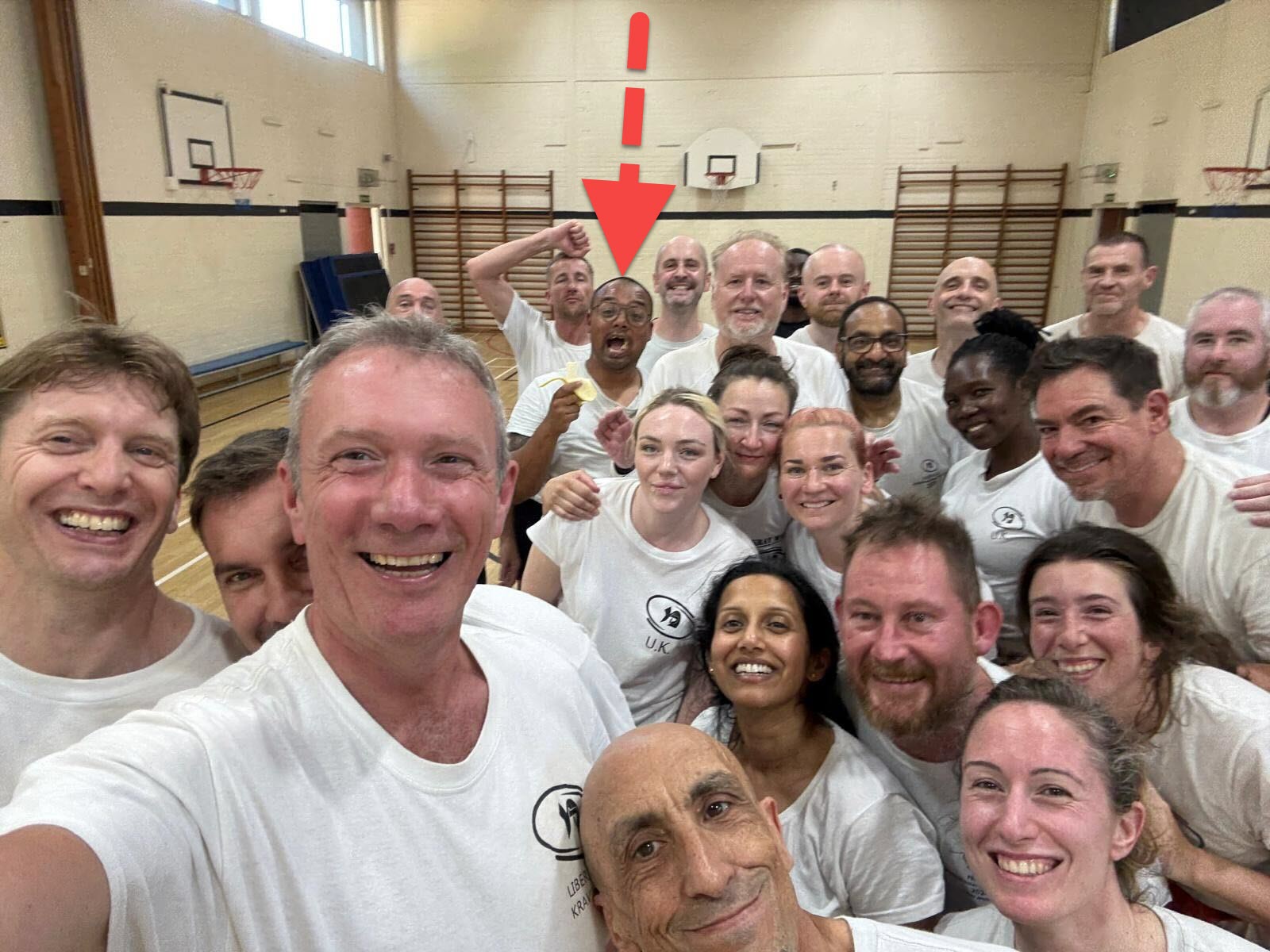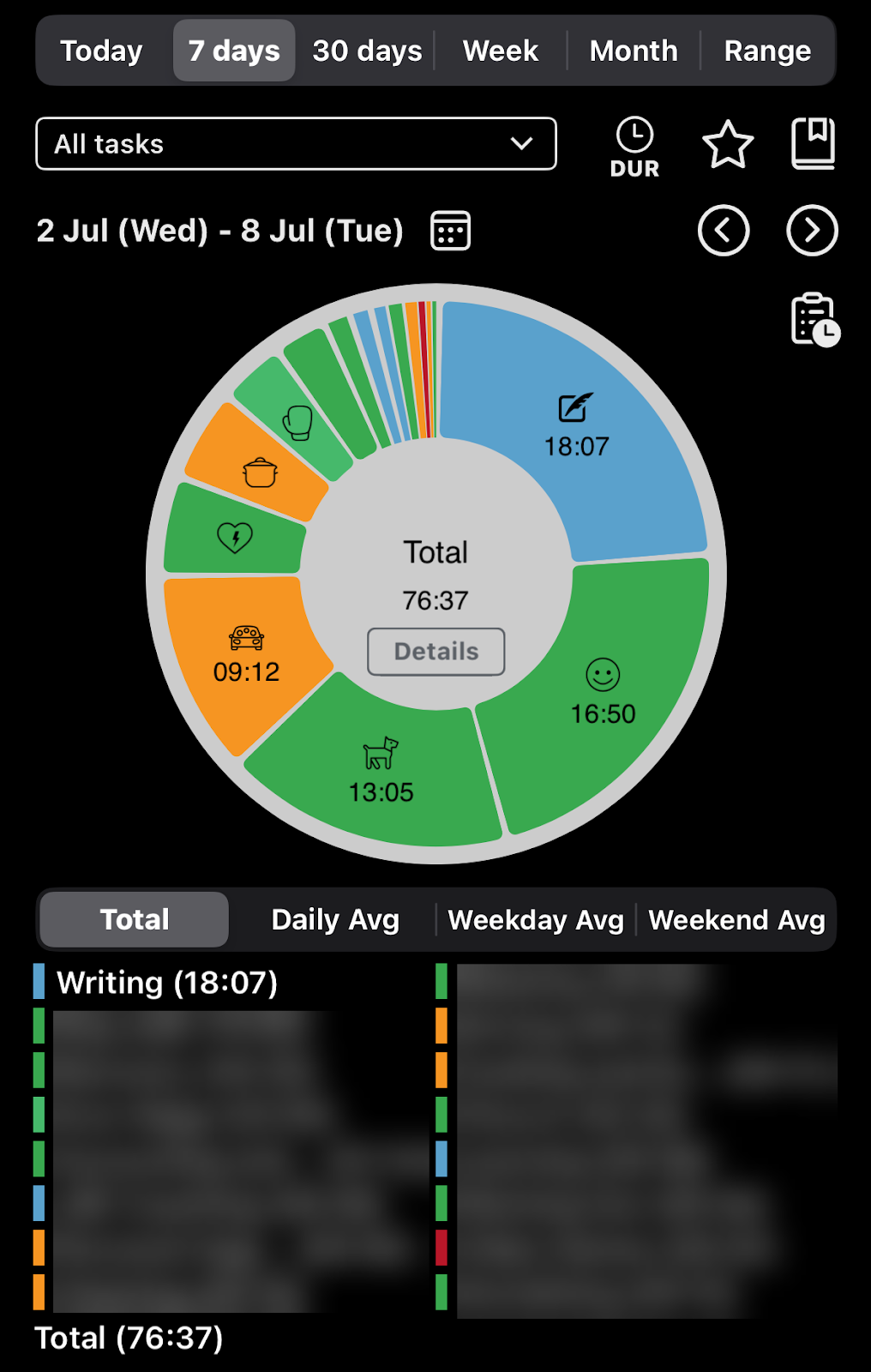Being so good they can't ignore...
5 steps to become better at _______

2025 has been the year I focused on becoming a better writer.
I’m sharing what I learnt to help you in your pursuit of
“I want to be better at _______ “
I believe that begins with becoming a better craftsman.
Let me explain…
Last weekend I was in Shrewsbury for the FEKM (European Federation of Krav Maga) UK Summer Course, a weekend of sweaty martial arts in a school hall.
(Context: I’ve practised Krav Maga since 2018, and been an instructor since 2022)

On Saturday afternoon, with a few hours between training and dinner, a friend and I wandered into town.
Shrewsbury isn’t exactly brimming with attractions, but we stumbled into something unexpectedly beautiful.
An open church with one of the finest stained-glass windows in the UK.

There was something deeply moving about it.
- The patience
- The precision
- The craftsmanship
I have always found myself drawn towards beautiful things, that I believe took a long time to make.
That word craftsmanship first entered my world back in 2018, when I read “So Good They Can’t Ignore You” by Cal Newport.
Newport is a computer science professor at Georgetown and a quietly brilliant writer, on focus, work, and meaning.
Another book of his “Deep Work” champions the opposite of hustle culture. It’s a manifesto for creating valuable things slowly, deliberately, and without distraction.
The kind of work that requires silence. Effort. Depth.
Not tweets. No noise. Not productivity theatre.
Imagine if Ernest Hemingway had spent more time documenting his writing habits than writing The Old Man and the Sea.
Newport’s philosophy stuck with me. It’s shaped how I work and what I value. And in that church in Shrewsbury, looking up at that Jesse Window, I saw it again. A reminder.
Craftsmanship matters
In a world obsessed with shortcuts, it’s easy to forget. But think about anything you truly love or admire.
A novel, a film, a product or a painting.
It’s not about going viral, it’s about building something that outlasts us.
Take the original iPhone. It didn’t explode overnight. It was just... better.
- Easier to use
- More connected
- More intuitive
- Better looking
- More personal
It wasn’t rushed. It was crafted.
But what can Jesse Window and Cal Newport teach you and I about being “better”?
In his “So Good I Can’t Ignore You” book he lays out the Five Habits of a Craftsman.
I sat down this morning to refresh myself.
Step 1: Decide what capital market you are in
We’re talking here about the career capital market. (But it can apply to any skills you wish to learn)
Career capital is simply the skills you have that mean people give you money.
There are two types:
- Winner takes all
- An auction
Writing is a winner takes all capital market. (Though being pretty, having connections and using social media a lot can certainly help!)
You can argue that people were busy and that’s why they didn’t see or read your blog, email, book, poem etc.
But the truth is, in a world of intense competition.
You just weren’t good enough for that person to stop and take a minute to sink into your writing.
Another example is professional track athletes.
The speed you run, the distance you throw or the height/length you jump, is a single factor in your personal success.
An auction market speaks to a “set of skills”
A sales manager is in an auction market.
Perhaps he still speaks to clients and sells, but more importantly he now manages, innovates, reports and disciplines, in a complex environment.
Understanding this, allows you to focus on the skills that matter.
The skills you need to list out, and then actively make time to improve (preferably where it often makes you feel uncomfortable)
Step 2: Identify your Capital Type
Once you know your market place, then you choose your type of capital to invest in.
I kind of think of this like a list of skills.
Newport talks about finding “open gates”
In other words, opportunities that are already open to you.
As a writer in 2025, I’m incredibly fortunate to have thousands of open gates.
- Forums
- Social media
- Writing competitions
- Personal blogs
Your potential audience is literally one post away, and the feedback loop is very fast.
A useful way to think about this, is to list out the ultimate skills, you would need to have, or your potential competitor or idol has.
If we return to martial arts, it’s the idea of “being a black belt.”
A few years ago on a long car ride, my coach (a double black belt himself) talked about the idea of “being vs becoming”
When you are something, then it becomes more obvious what you do.
So, a black belt by the nature of its difficulty in our practise (it takes a minimum of 6 years, and for many significantly longer) you would need to:
- Practise regularly
- Be supple and flexible
- Repeat techniques many times
- Engage in shadow boxing/ flow work
- Have good cardiovascular endurance
I find this to be a great exercise in identifying the practical elements of the skill you wish to build.
In writing it’s simply:
- Write more
- Read more
- Get feedback
Step 3: Define “Good”
This is when we start to think about regular practise.
Let’s expand on the idea of “being a black belt”
- Practise regularly
- Be supple and flexible
- Repeat techniques many times
- Engage in shadow boxing/ flow work
- Have good cardiovascular endurance
Practising regularly is 2-3 times a week.
Being supple and flexible is measured in your ability to kick at head height, and do turning/spinning kicks.
You gain this through regular stretching / a yoga practise.
The last three items can then be broken down into practise blocks with a goal in mind for each of them.
Repeat techniques many times = 15 minutes , 3 times a week of random technique practise.
The “good enough” is getting the nod from coach, through video feedback or after your next class.
The bottom line for writing has always been making a full time living.
Which I have done for some years, though I have extended financial goals in mind, my idea of good enough is fairly simple.
- Write more = 20 hours a week
I track this using a time tracking app. Called Atracker , it’s free but you pay £5 for the lifetime pro version.
Tracking my time since May has been incredibly powerful in terms of getting clarity of what I actually do.
What I like about the app is you simply list out the stuff you do, then click from task to task.
Any tracker that isn’t incredibly easy would just get abandoned.
You end being able to clearly see what you’re doing, with simple reports like this:

This all stems from the oft-quoted Peter Drucker
“What doesn’t get measured, doesn’t get managed”
Left to my own devices I will almost always over estimate, or neurotically beat myself up for not doing enough.
By just seeing in black and white what I spend time on, I can choose:
- What I want to do more
- What I want to reduce or eliminate
My reading and feedback loops are still developing.
For you, I’d suggest on your list of skills, thinking:
- How can I practise this?
- Do I need to learn anything?
- What frequency will I do this? Both in terms of single session duration and weekly/monthly repetition
- How do I know if this is good?
Personally, I’d suggest initially, just trying to do something more, based on a proven framework from someone who has done what you are doing.
Then think about seeking feedback as you get better.
My overthinking can prevent me from simply “doing” the thing.
Step 4: Stretch and Destroy
Writing this newsletter is a stretch for me.
I already have a significant amount of creative work to complete, but I have a little space on the internet where I can write about thinks which genuinely interest me at the time.
But for me, I’ve not settled on a schedule to publish.
What are the goals that really “stretch you”
That’s where all the growth is.
In my experience through volunteering for well over a decade, the maximum growth comes from going to that place where I feel uncomfortable.
- That could be dealing with money
- Speaking to difficult or unfamiliar people
- Sitting in front of a computer and learning Excel
Discomfort is not an “all the time” feeling.
For me discomfort feels like:
- Running sprints once a week
- Deep squatting and increasing hip flexibility
- The fifth hour of writing that happens some days
- Cold showers and plunges
In the grand scheme of things it’s momentary, but it expands the mind.
What’s one thing you could do each week that’s out of your comfort zone?
A simple and easy one for me, is a 30 second cold blast from the shower.
Step 5: Be patient
I’ve been writing for 13 years and have only ever met one other writer who made a decent enough living to fully support themselves and their family.
There are countless studies of great performers in the sciences, arts, sports and beyond who took 10+ years to achieve anything noteworthy.
One of my greatest shortcomings has been underestimating how a decent routine, and slowly chipping away at the mountain can yield exceptional results.
I’m starting to see a glimpse of that since May.
Don’t think about results, just think…
“Just for today, what can I do?”
If you want to achieve anything great like that stained glass window, a book that lives longer than you do in other people’s hearts and minds then it’s going to need to be a marathon and not a sprint.
I’d love to hear your thoughts about this, any interesting enjoyment of craftsmanship, or what you want to be great at.
Drop me a comment down below, or send an email to michael.muttiah@gmail.com




